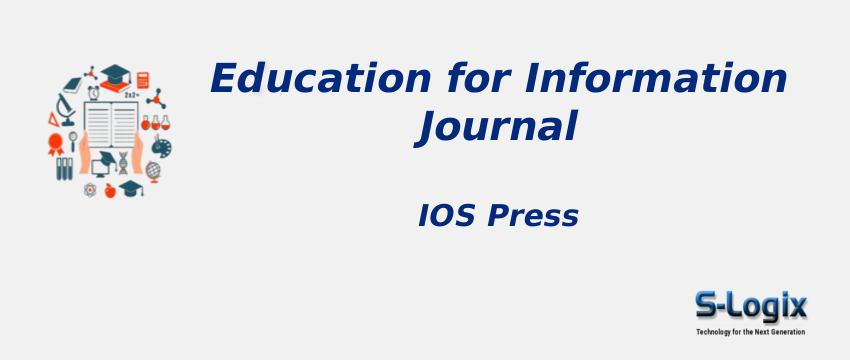Education for Information: An Interdisciplinary Journal of Information Studies is a peer-reviewed, international journal publishing fundamental and applied research in the interdisciplinary field of the information studies. It invites submissions of research papers, of professional practices, conservations and debates from scholars and practitioners from the information fields (iFields).
Journal Home: Journal Homepage
Editor-in-Chief: Fidelia Ibekwe
scope: Topics of interest include but are not limited to education, pedagogy and learning in the iFields; information seeking and use; information policy and ethics; information retrieval; digital humanities; documentation theory and practice; data science; gender studies in the iFields, etc.
Print ISSN: 01678329
Electronic ISSN: 18758649
Abstracting and Indexing: Scopus
Imapct Factor :
Subject Area and Category: Computer Science Information Systems Social Sciences Education Library and Information Sciences
Publication Frequency:
H Index: 20
Q1: Library and Information Sciences
Q2:
Q3:
Q4:
Cite Score: 3.1
SNIP: 1.307
Journal Rank(SJR): 0.874
Latest Articles: Latest Articles in Education for Information
Guidelines for Authors: Education for Information Author Guidelines
Paper Submissions: Paper Submissions in Education for Information
Publisher: IOS Press
Country: Netherlands
